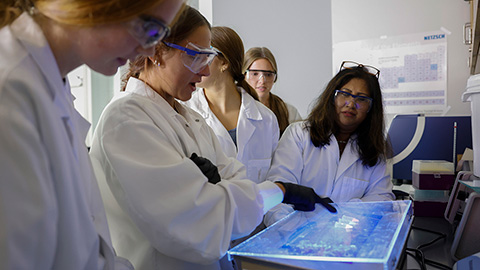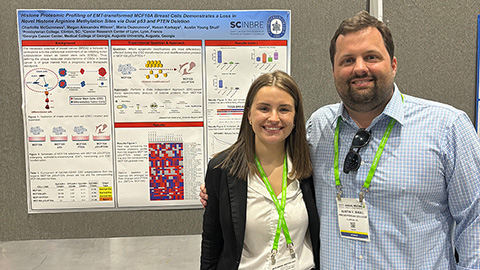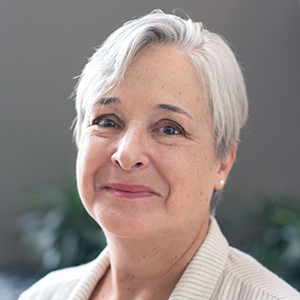
Take a breath
Like a lot of people, since mid-March 2020 I’ve had some trouble sleeping. I’ll conk out as soon as I turn the light off, only to wake up again at 2:30 a.m. At first, my cat got very excited, hoping this was a tweak in her breakfast schedule.

I know I should avoid doom-scrolling on my phone, so I opt for a Sudoku or a soothing novel. After half an hour or so, I turn the light off again and focus on slow, shallow breathing. It doesn’t always help me get back to sleep, but I’ve begun thinking a lot about the act of inhaling and exhaling.
Several of the articles and essays in our January wellness issue of ASBMB Today touch on breathing — what it can do for our minds and bodies and even for our ability to support and care for the people around us.
Breathing, like wellness, isn’t something I do just for myself. If I’m going to contribute anything to the world, I need to have a functioning (loosely defined) brain and body. Sometimes I glance at fitness websites and roll my eyes at the sheer narcissism of all that sculpting and supplementing. And, sure, it’s about looking good and living long.
But at the heart of it, I think we all take care of ourselves as a gift to those around us as much as to ourselves. If we feel good, we can be more thoughtful, more helpful, more a part of the world.
And it all starts with being sure we have air.
Enjoy reading ASBMB Today?
Become a member to receive the print edition four times a year and the digital edition monthly.
Learn moreGet the latest from ASBMB Today
Enter your email address, and we’ll send you a weekly email with recent articles, interviews and more.
Latest in Opinions
Opinions highlights or most popular articles

The tortoise wins: How slowing down saved my Ph.D.
Graduate student Amy Bounds reflects on how slowing down in the lab not only improved her relationship with work but also made her a more productive scientist.

How pediatric cataracts shaped my scientific journey
Undergraduate student Grace Jones shares how she transformed her childhood cataract diagnosis into a scientific purpose. She explores how biochemistry can bring a clearer vision to others, and how personal history can shape discovery.

Debugging my code and teaching with ChatGPT
AI tools like ChatGPT have changed the way an assistant professor teaches and does research. But, he asserts that real growth still comes from struggle, and educators must help students use AI wisely — as scaffolds, not shortcuts.

AI in the lab: The power of smarter questions
An assistant professor discusses AI's evolution from a buzzword to a trusted research partner. It helps streamline reviews, troubleshoot code, save time and spark ideas, but its success relies on combining AI with expertise and critical thinking.

How AlphaFold transformed my classroom into a research lab
A high school science teacher reflects on how AI-integrated technologies help her students ponder realistic research questions with hands-on learning.

Writing with AI turns chaos into clarity
Associate professor shares how generative AI, used as a creative whiteboard, helps scientists refine ideas, structure complexity and sharpen clarity — transforming the messy process of discovery into compelling science writing.

